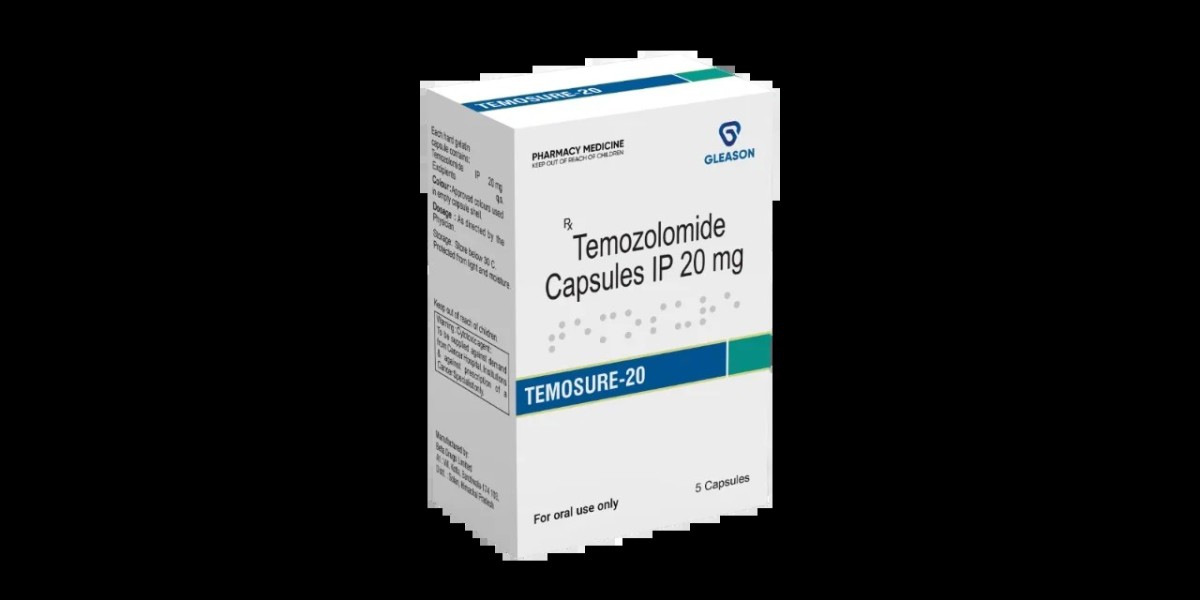The effectiveness of this medication depends largely on adhering to proper dosage guidelines, so it’s crucial to follow medical advice closely.
This article provides an overview of the dosage, administration, and important considerations for using Temosure 100 Capsule effectively.
Mechanism of Action
Temozolomide, the active ingredient in Temosure 100, is an alkylating agent that damages the DNA of cancer cells, preventing them from replicating and eventually leading to their death. It crosses the blood-brain barrier, making it particularly useful in treating brain tumors.
Indications
Temosure 100 Capsule is primarily prescribed for:
- Glioblastoma multiforme: A fast-growing brain tumor.
- Anaplastic astrocytoma: A less aggressive, but still malignant brain tumor.
Temozolomide is also occasionally used for other types of cancer, depending on the doctor’s assessment.
Dosage Guidelines
The dosage of Temosure 100 depends on several factors, including the patient’s body surface area (BSA), health condition, and the type of tumor being treated. The recommended dosing schedule typically follows one of these two regimens:
1. Standard Initial Therapy:
- For Newly Diagnosed Glioblastoma Multiforme (in combination with radiotherapy):
- Oral dose: 75 mg/m² once daily for 42 days (with a maximum of 49 days) concurrently with focal radiotherapy, followed by maintenance therapy.
- For Maintenance Therapy (following radiotherapy):
- The dose may vary:
- Cycle 1: 150 mg/m² once daily for 5 consecutive days, followed by a 23-day rest period.
- Cycle 2 and Beyond: The dose may be increased to 200 mg/m² once daily for 5 days, depending on the patient’s tolerance and blood counts.
- The dose may vary:
2. Recurrent Anaplastic Astrocytoma:
- Oral dose: 150-200 mg/m² once daily for 5 days in a 28-day treatment cycle.
Important Notes:
- Body Surface Area (BSA): Dosage is calculated based on BSA, so adjustments are made for each individual patient.
- Blood Count Monitoring: Regular blood tests are essential to monitor white blood cells, platelets, and other parameters, which help determine whether dose adjustments are needed.
Administration Instructions
Temosure 20 Capsule is taken orally, and the following guidelines should be observed:
- Time of Day: It is usually taken once daily at the same time.
- With or Without Food: It is best taken on an empty stomach or at least 1 hour before a meal to improve absorption and reduce nausea. If nausea becomes a problem, your doctor may suggest taking it with a small snack.
- Do Not Crush or Open the Capsule: Swallow it whole with a full glass of water.
- Missed Dose: If you miss a dose, take it as soon as possible unless it’s close to the next dose. Never double up doses.
- Storage: Store the medication at room temperature, away from moisture and heat. Keep it out of reach of children.
Monitoring and Side Effects
While taking Temosure 100, regular monitoring is essential due to potential side effects.
Common Side Effects:
- Nausea and vomiting
- Fatigue
- Headache
- Constipation or diarrhea
- Loss of appetite
Serious Side Effects:
- Severe myelosuppression (low blood count): Can increase the risk of infections, bleeding, and anemia.
- Seizures or neurological symptoms
- Liver toxicity
Report any severe side effects to your doctor immediately.
Special Precautions
- Pregnancy and Breastfeeding: Temosure 100 is contraindicated during pregnancy due to its potential to harm the fetus. Breastfeeding should also be avoided during treatment.
- Immunosuppression: This drug may suppress the immune system, so avoiding contact with sick individuals is advised.
- Drug Interactions: Some medications, supplements, and even foods can interact with Temosure, affecting its efficacy or increasing side effects. Always inform your healthcare provider about all substances you’re taking.
Overdose and Emergency Care
In case of accidental overdose, seek medical attention immediately. Overdosing on Temozolomide can cause severe bone marrow suppression, leading to life-threatening conditions.
Conclusion
Temosure 100 Capsule is a potent chemotherapy medication requiring careful dosage management and monitoring. Always adhere strictly to your doctor’s guidance and report any side effects or concerns you experience. Regular follow-ups and blood tests are critical to ensure the treatment remains safe and effective.







